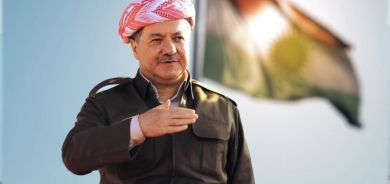Iraq Plans to Repatriate 150 Families from al-Hol Camp in Syria

Iraq’s Ministry of Migration and Displaced has announced plans to repatriate 150 families from al-Hol camp in northeast Syria, a facility housing individuals linked to the Islamic State (ISIS). The move, reported by Iraqi media network Rudaw, is part of ongoing efforts to address the complex humanitarian and security challenges posed by the camp.
Ministry spokesperson Ali Abbas confirmed on Friday that the families would be transferred to al-Jada camp in Iraq’s Nineveh province. Upon arrival, they will undergo a rehabilitation program lasting several months, with the duration depending on individual circumstances.
Al-Hol Camp: A Lingering Crisis
Al-Hol camp, located in Syria’s Hasaka province, is home to approximately 40,000 people, primarily Iraqis and Syrians with ties to ISIS. The camp has been a focal point of international concern since the group’s territorial defeat in 2019, with critics warning that it could become a breeding ground for terrorism.
The repatriation process is being coordinated with the Syrian Democratic Forces (SDF), the Kurdish-led military alliance that controls the area. However, the initiative has faced significant opposition within Iraq, particularly from local tribes who are reluctant to accept individuals associated with ISIS due to the group’s history of atrocities.
Challenges and International Reluctance
Kurdish authorities in northeast Syria have repeatedly called on the international community to repatriate their citizens from al-Hol, but most nations have been hesitant, citing security risks and the potential for reintegration challenges. Iraq, however, has been one of the few countries actively working to bring its citizens home.
The repatriation of the 150 families marks a significant step in addressing the al-Hol crisis, but it also highlights the ongoing difficulties in balancing humanitarian concerns with security needs. The rehabilitation program at al-Jada camp aims to reintegrate returnees into Iraqi society, but skepticism remains high among local communities.
A Path Forward
The Iraqi government has emphasized the importance of addressing the root causes of extremism while ensuring the safety and stability of its citizens. The repatriation and rehabilitation process is seen as a critical component of this strategy, though its success will depend on careful implementation and community support.
As Iraq moves forward with its plans, the international community continues to grapple with the broader implications of the al-Hol camp. With thousands still stranded in the facility, the need for a coordinated and comprehensive response remains urgent.
For now, the repatriation of the 150 families represents a small but significant step in resolving one of the most pressing humanitarian and security challenges in the region.















